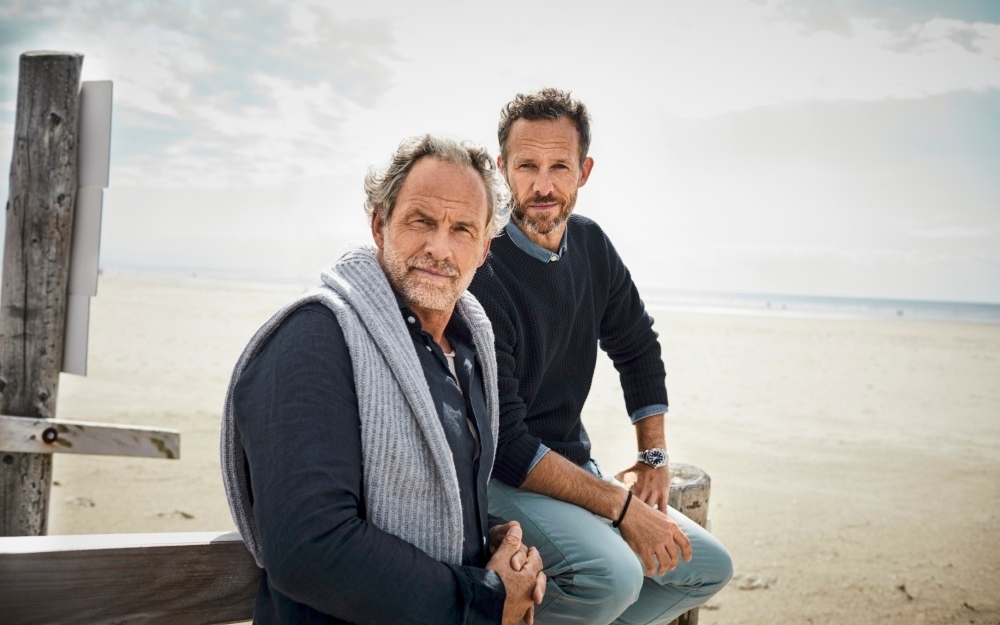I went to see a physiotherapist for the first time ever. I’m not even quite sure why. Maybe it was because I love seeing my psychotherapist and there are only a few letters difference? Anyway, somehow it had got on the list of maintenance for a woman of my age (51) along with those other grudge tasks like the mammogram clinic and facial hair removal.
I wished I hadn’t.
The physio asked me about my health. He did a bad smell face when I said I did yoga almost every day. “I’m not a fan of yoga.” (Did you know it is inadvisable to make your hamstrings more flexible if your lumbar strength is not sufficient? You’re welcome.)
It was perverse of me to volunteer that I also used to do regular pump classes with weights. That got an even worse moue of disapproval and I don’t know what possessed me to add that sometimes I went running. I thought he might have a heart attack.
He admonished me: “Don’t do that! You’ll injure yourself!” (For some reason I remember him saying, “Zut alors!” but I might have imagined that.)
The next day I noticed that in the wake of the physiotherapist’s look of disapproval I now felt quite unmotivated about my daily yoga fix.
I used to look forward to rolling out my yoga mat. What had happened? All I did was tell the physio about it and now I felt like simply getting in downward facing dog was downright risky and irresponsible.
I say this not to attack physiotherapists, who I’m sure are very useful if you really need one, but because it showed the curious fragility of our motivation.
Look how easily I got dissuaded, just because one so-called ‘expert’ pulled a who-just-farted face at my yoga-tastic practice. We can so easily change how we see things if we listen to other people.
Maybe we need to be more careful who we let in to our inner worlds. My yoga practice felt special and meaningful to me, but when I shared it with the physio that mysterious alchemy disappeared.
I should have just shut up because it turns out there is hard science to support the view that we are better off keeping our goals and dreams to ourselves.
Some experts say that early praise can leave an individual feeling they have already won, in turn causing them to be less likely to follow through with their goals.
In 1903 a guy called Samuel Langley was feted for his efforts to be the first to make a plane that flew. But despite all the public support and praise, his plane crashed and burned, while some nobodies called the Wright Brothers managed to get airborne first. Telling everyone what he was going to do backfired for Samuel.
A psychologist called Peter Gollwitzer has found if you set a goal that is closely tied to your identity and then share your intentions with other people, you are less likely to achieve it.
So, say, your goal is to drink more water, or collect paper clips, if you tell other people, it will have little bearing on whether you succeed or not. That’s because those goals have little bearing on your view of yourself, your identity. But if your goal is to lose weight, or write a Booker Prize-winning novel, you’re better off not spreading it all over Facebook.
We need a plan in place to protect our delicate, precious motivation from other people. Sometimes you need to keep your most precious things secret to yourself, and sometimes you just need to tell other people to bog off – it’s none of their business. Experts might not know as much about you as you do.
But it takes practice to stick with yourself and it comes from learning to listen to your intuition.
A couple of years ago my daughter started at a posh private school. We had bought the fancy uniform and bought into the whole academic philosophy.
But she hated it. She had only been going there for less than two weeks, so I encouraged her to stick it out for a term.
I worried though – the school didn’t seem to be her kind of place or mine, for that matter. But I ignored my doubts because everyone-who-was-anyone said this was the best school in Auckland, the students went on to the world’s greatest universities. It would be humiliating to admit we were wrong and pull her out. Then one day, in her second week, while I was driving her to school, I stopped at the lights, I noticed she was literally shaking with anxiety and fear. I couldn’t ignore my own feelings any longer. I said, stuff this, did a U-turn and took her home. She never went back and now is very happy at a different sort of school.
I often think back on that moment and remind myself that I listened to my gut and it worked out well. I could feel in my body, it just felt wrong, and instead of ignoring that, I honoured it. Who cares that other people thought this was a brilliant school? It didn’t feel right for my child. I try to remember that sensation, because it is useful to be able to call it up at will. Like right now, for example.
I am going to listen to my body and roll out my yoga mat. I don’t care if some expert says yoga is bad – it feels pretty darn good to me. And they’re my hamstrings, not his.




